DEAR FRIENDS. IF YOU LIKE THIS TYPE OF CONTENT, SUPPORT SOUTHFRONT WORK:
PayPal: southfront@internet.ru
Donation alerts: https://donationalerts.com/r/southfront
Gumroad: https://gumroad.com/southfront
Or via: http://southfront.org/donate/ or via: https://www.patreon.com/southfront,
BTC: 3Gbs4rjcVUtQd8p3CiFUCxPLZwRqurezRZ,
BCH ABC: qpf2cphc5dkuclkqur7lhj2yuqq9pk3hmukle77vhq,
ETH: 0x9f4cda013e354b8fc285bf4b9a60460cee7f7ea9
Turkey’s foreign policy since the Justice and Development Party (AKP) led by Recep Tayyip Erdogan assumed power in 2002 has undergone several major and abrupt changes over time, partly due to changes in regional and global geopolitical developments and partly due to domestic factors and perceptions of Turkey’s interests and how they can best be achieved at any given moment.
Introduction
After being on the losing side in World War I the Ottoman Empire was unscrupulously carved up by the victors of World War I, with many areas previously under the control of the Ottoman Empire being invaded and occupied by British and French armed forces, often acting with the assistance of local proxy militias. As in Africa and other regions, the British and French subsequently decided the location of many of the current borders based on their own imperial ambitions, resulting in numerous disputed areas. The Encyclopedia Britannica states of the Treaty of Lausanne of 1923:
The treaty recognized the boundaries of the modern state of Turkey. Turkey made no claim to its former Arab provinces and recognized British possession of Cyprus and Italian possession of the Dodecanese. The Allies [i.e., Britain and France] dropped their demands of autonomy for Turkish Kurdistan and Turkish cession of territory to Armenia, abandoned claims to spheres of influence in Turkey, and imposed no controls over Turkey’s finances or armed forces. The Turkish straits between the Aegean Sea and the Black Sea were declared open to all shipping. LINK
The Post World War II – Cold War Period
Turkey remained neutral during World War II and afterwards allied with ‘the West’, joining NATO in the early 1950s. In accordance with its strong pro-West alignment, Turkey was the first majority Muslim State to recognize Israel with which it also had close military and intelligence links – including joint military training exercises in Turkey involving Israeli aircraft – until relations began to deteriorate during the Erdogan presidency, particularly after around 2009 as Turkey sought to establish itself as a leader of the Muslim world (while Erdogan was still prime minster). They further worsened following the Israeli interception and commando attack on the 2010 Gaza Freedom Flotilla during which the Israeli commandos killed ten unarmed people, most of whom were Turkish citizens.
Although Turkey was a staunch NATO ally (which included embedded ‘Deep State’ covert military and intelligence ties related to the Gladio stay-behind forces), during the 1990s it began to adopt a more independent foreign policy and refused permission for NATO (US) military assets stationed at the Incirlik Air Base to be used against Iraq during the second attack against Iraq in 2003.
The summary of Turkey’s foreign policy since World War II by Encyclopedia Britannica is worth quoting at length, as it describes many of the issues that remain at the centre of ongoing disputes and conflicts and demonstrates that, while Turkey’s foreign policy has become more aggressive and military-oriented under Erdogan and the AKP, there is also a substantial degree of continuity based on deeply ingrained perceptions and objectives among Turkey’s military leadership in particular but also among a substantial part of the wider population:
From the era of Atatürk and Turkey’s foundation, its foreign policy has been markedly oriented toward the West. Though it remained neutral throughout most of World War II, it sided with the Allied powers when it eventually entered the war. In the postwar era Turkey took on more active engagement with the West…
Cracks in Turkey’s relationship with the West emerged when the West failed to intervene in Cyprus after an attempted coup in 1974. Thereafter Turkey broadened its relations beyond the West, including a friendship agreement with the Soviet Union in 1978, while Cyprus and sovereignty disputes in Aegean Sea remained a major impediment to its relations with the West well into the 21st century…
Until the 1960s, Turkish foreign policy was wholly based on close relations with the West, particularly the friendship of the United States. Turkey sent troops to fight in the Korean War and joined the North Atlantic Treaty Organization (NATO; 1952) and the Central Treaty Organization (1955). This Western-oriented policy derived from Turkey’s fear of its enormous northern neighbour, the Soviet Union, from its dependence on U.S. military and economic aid, and from its desire to be accepted as a secular, democratic, Western state. After 1960, however, this policy came into question as a consequence of East-West détente, the rise of economic and political cooperation in western Europe, and the growing economic importance of Middle Eastern countries…
Doubts also began to creep into Turkish political thought about the reliability of the United States as an ally, especially in consequence of events in Cyprus…
These events (in Cyprus), which were followed by disputes over the extent of territorial waters, underwater resources in the Aegean Sea, sovereignty over uninhabited islands, and airspace, led to bad relations with Greece and a cooling of relations with the United States, which Turks believed had favoured Greece. In 1987 and 1996 Turkey and Greece came to the brink of war over the Aegean.
As a result of its experience with Cyprus and the Aegean Sea, Turkey—while remaining faithful to the Western alliance—broadened its options. From 1964 it developed better relations with the Soviet Union, leading to a friendship agreement in 1978. Following the disintegration of the Soviet Union in 1991, however, Turkey was quick to establish relations with the newly independent Transcaucasian and Central Asian states (many of which had Turkic-speaking majorities). Turkey recognized the government of mainland China in 1971, improved relations with the Balkan states (although relations with Bulgaria were disturbed by an exodus of 300,000 Turkish refugees from that country in 1989), and cultivated closer connections with the Arab and Islamic world…
A cooperative foreign policy orientation took form, meanwhile, during the early years of AKP governance. Eventually articulated as “zero problems with neighbours,” this doctrine sought to expand bilateral ties and economic interdependence in the region, including with Armenia. It also sought, in like spirit, to serve as an intermediary and bridge for foreign powers, even mediating peace talks between Syria and Israel in 2008… LINK
Turkey’s Bid For Territorial Expansion And ‘Regional Superpower’ Status
Although Turkey participated in the US-led NATO military operations in Iraq and Yugoslavia in the 1990s and permitted the use of US military bases in Turkey for airstrikes and logistical support, Turkey distanced itself from the second US war against Iraq. While Turkey had steadily increased relations with Europe – via the European Economic Community and later the European Union – relations have soured as it became apparent that the EU would not permit Turkey’s full membership (with France in particular opposed), and as the EU has continued to side with Greece in the territorial and other disputes between the two countries.
After having adopted a ‘zero-problems’ policy with neighbouring countries. following the outbreak of widespread conflict in Syria in 2011 the political and military leadership perceived an opportunity to take over territory in Syria directly and indirectly (though armed proxy groups) in accordance with what had been up until that time largely latent ‘Greater Turkey’ neo-imperial ambitions. Some analysts believe this was the objective from the outset:
From the moment he assumed power in 2003, Erdogan has striven to elevate Turkey’s international role to that of a regional, if not global, power. Initially, his strategy was one of “zero problems with neighbours,” which served to emphasize Turkey’s soft power. The primary driver, however, was the desire for Turkey to assume a hegemonic position over the Middle East. This policy foundered and was essentially buried by the Arab Spring.
What has replaced it is a more aggressive and militarized posture that takes the fight to perceived enemies. That could mean anyone and everyone, since Turks tend to see most countries as a threat, even if they are allies. Before Erdogan, Ankara pursued defensive strategies. Under Erdogan, Turkey has intervened in Syria against the Assad regime and again against the Syrian Kurds who are allied with the United States. Turkish troops and their Syrian Islamist allies have occupied two Kurdish areas in northern Syria with the ultimate intention of constructing a Kurdish-free buffer zone. The only reason it remains uncompleted is because a small American force is still there working with the Syrian Kurd-led Syrian Democratic Forces…
In the Mediterranean, however, it is clear that Erdogan has now adopted a strategy developed by arch-nationalist army officers, called the ‘Blue Homeland’. As a first step, this new doctrine envisages the domination of the Aegean, of most of the Mediterranean and of the Black Sea. To this end, Turkey has invested in expanding both the size and sophistication of its navy…
The Blue Homeland doctrine makes it clear that Turkey does not recognize the post-World War I arrangements over the Aegean. Turkey claims many Greek islands and Greece’s EEZ. There have been hints about drilling for gas near the Greek island of Crete. Flushed with confidence after his victories in Syria and Libya, Erdogan may well decide this is a good time to challenge Greece, especially as such an exploit would play well at home.
The second danger lies in Libya. Turkey makes no secret of wanting to establish a naval and an airbase on Libyan territory. Along with any attempt to expand the GNA-controlled zone by moving toward Sirte, these bases could trigger a more forceful Egyptian reaction, possibly supported by Algeria and even the Russians.
The Europeans, especially the French, are alarmed at the presence of a large contingent of Syrian Islamist fighters brought to Libya by Turkey… LINK
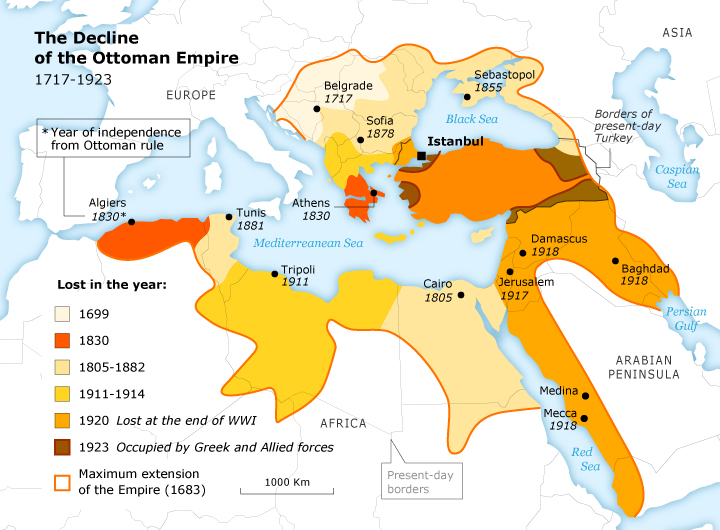
Apart from seeking to recapture many old spheres of influence, there are substantial Turk-speaking populations in many countries of central and southwest Asia.
The Western/ Turk/Zionist Destabilization And Invasion Of Northern Syria
As the author cited previously notes, Turkey’s territorial and ‘regional superpower’ ambitions have grown voraciously encouraged by the early successes. The invasion and occupation of northern Syria has resulted in the mass displacement of local residents in areas that have been invaded by pro-Turkish armed proxy groups (and joined by regular Turkish forces since 2016). A UN investigation has recently been published denouncing widespread human rights abuses against residents in areas occupied by Turkish military and Turkish proxy forces.
A book by investigative journalist Seymour Hersh describes how the destabilization and invasion of Syria was for some time a collaborative venture between NATO and Turkey, among others, but that their interests and objectives in Syria diverged over time:
Barack Obama’s repeated insistence that Bashar al-Assad must leave office – and that there are ‘moderate’ rebel groups in Syria capable of defeating him – has in recent years provoked quiet dissent, and even overt opposition, among some of the most senior officers on the Pentagon’s Joint Staff. Their criticism has focused on what they see as the administration’s fixation on Assad’s primary ally, Vladimir Putin. In their view, Obama is captive to Cold War thinking about Russia and China, and hasn’t adjusted his stance on Syria to the fact both countries share Washington’s anxiety about the spread of terrorism in and beyond Syria; like Washington, they believe that Islamic State must be stopped.
The military’s resistance dates back to the summer of 2013, when a highly classified assessment, put together by the Defense Intelligence Agency (DIA) and the Joint Chiefs of Staff, then led by General Martin Dempsey, forecast that the fall of the Assad regime would lead to chaos and, potentially, to Syria’s takeover by jihadi extremists, much as was then happening in Libya. A former senior adviser to the Joint Chiefs told me that the document was an ‘all-source’ appraisal, drawing on information from signals, satellite and human intelligence, and took a dim view of the Obama administration’s insistence on continuing to finance and arm the so-called moderate rebel groups.
By then, the CIA had been conspiring for more than a year with allies in the UK, Saudi Arabia and Qatar to ship guns and goods – to be used for the overthrow of Assad – from Libya, via Turkey, into Syria. The new intelligence estimate singled out Turkey as a major impediment to Obama’s Syria policy. The document showed, the adviser said, ‘that what was started as a covert US programme to arm and support the moderate rebels fighting Assad had been co-opted by Turkey, and had morphed into an across-the-board technical, arms and logistical programme for all of the opposition, including Jabhat al-Nusra and Islamic State. The so-called moderates had evaporated and the Free Syrian Army was a rump group stationed at an airbase in Turkey.’ The assessment was bleak: there was no viable ‘moderate’ opposition to Assad, and the US was arming extremists… LINK
At the same time as Turkey has endeavoured to consolidate its control over northern Syria, the invading Turkish armed forces and other criminal groups working under their protection or with their acquiescence have systematically looted resources in occupied areas, most of which have been transferred to Turkey or through Turkey for sale on international markets.
Resources looted include industrial machinery and in some cases entire factories, wheat, antiquities and crude oil. LINK1, LINK2 The latter was transported to Turkey in massive quantities for several years from north eastern Syria and north western Iraq by road in large convoys of tankers or via pipelines from Iraq.
Late in 2015 the Russian Air Force destroyed hundreds of vehicles that were transporting contraband crude oil between northern Syria, Iraq and Turkey.
At a press conference, Russia’s General Staff announced that around 500 fuel tanker vehicles transporting illegal oil from Syria to Iraq for processing have been destroyed.
“In recent years, Islamic State (IS, formerly ISIS/ISIL) and other extremist groups have organized the operations of the so-called ‘pipeline on wheels’ on the territories they control,” Russian General Staff spokesman Colonel General Andrey Kartapolov said.
Hundreds of thousands of tons of fuel have been delivered to Iraq for processing by trucks and the revenue generated from these illegal exports is the one of the terrorists’ main sources of funding.
In December 2018, the chief of the Russian General Staff, General Valery Gerasimov, revealed that the Russian intelligence services had been monitoring regular convoys transporting oil, which moved from eastern Syria to Turkey and Iraq.
“The Russian intelligence services regularly register convoys of trucks carrying oil tankers, which move from Syria’s eastern regions, controlled by [the US-led] coalition, to the territories of Turkey and Iraq … the funds from the sale of oil products are also being spent on financing terrorists belonging to ISIS,” Gerasimov said during a briefing with foreign countries’ military attaches. LINK
Following the air strikes in 2015, the Ministry of Defence also announced that “it had proof that Turkish President Tayyip Erdogan and his family (are) involved in the illegal smuggling of oil from Islamic State-held territory in Syria and Iraq.” LINK
Senior Russian officials later elaborated on the illegal activities and some of the ringleaders that had been identified:
“Turkey is the main consumer of the oil stolen from its rightful owners, Syria and Iraq. According to information we’ve received, the senior political leadership of the country – President Erdogan and his family – are involved in this criminal business,” said Deputy Defence Minister Anatoly Antonov.
“Maybe I’m being too blunt, but one can only entrust control over this thieving business to one’s closest associates.”
“In the West, no one has asked questions about the fact that the Turkish president’s son heads one of the biggest energy companies, or that his son-in-law has been appointed energy minister. What a marvellous family business!” LINK
As relations with the US plummeted – particularly following the attempted coup in Turkey in 2016, which Erdogan suspects the US was involved in, but also due to US assistance to Kurdish armed groups in its efforts to dismember Syria – Erdogan sought to greatly improve ties with Russia, an effort which has been largely successful notwithstanding numerous major confrontations, provocations and disputes.
In terms of Turkey’s relations with other countries, during the last decade Turkey’s foreign policy has been adapted to the political and military leaderships’ increasingly overt territorial ambitions of establishing a ‘Greater Turkey’, whose main foundation is the occupation and annexation of large areas in northern Syria and Iraq bolstered by a network of military bases and logistics hubs spread throughout the region and reaching into outlying areas (including Somalia, Libya and Niger in northern Africa).
Furthering this ambition has been the only constant in Turkish foreign policy since 2011. Although the plans for territorial expansion were complicated by the coup attempt in 2016 that nearly ousted Erdogan before being quashed, resulting in regular purges on a massive scale of the military and other State institutions of anyone whose allegiance (to Erdogan, to Turkey’s national interest, or to Greater Turkey?) is in question. The coup and subsequent purges has greatly weakened the cohesion and capabilities of Turkey’s armed forces and State institutions and capacity more generally, and brought a great deal of attention to allegations of a ‘Deep State’ in Turkey for a while.
It is quite likely that there is indeed some type of ‘Deep State’ network active in Turkey (Ankara calls it FETO or Fethullahist Terrorist Organisation. The formal name of this group is the Gülen movement), as the 2016 attempted coup attests. In fact, it is possible that there are several such covert networks, alternatively collaborating or locked in bitter conflict in their interminable contest for resources and positions of power to further their objectives.
A detailed analysis by the Middle East Institute of the Ergenekon case notes three such networks embedded within Turkish political, economic and military power structures. There may however be others. The Muslim Brotherhood is widely accused of serving a dual role, its overt political and charitable functions as well as a covert agenda of which very few of its members are aware, in effect an Islamic branch of Freemasonry or an organization based on similar structural and operational principals and methods.
With respect to the Ergenekon case:
Such an invisible establishment is not new to Turkish history; the existence of “deep-state” networks can be traced back to the final years of the Ottoman Empire. The most widely accepted view on the nature of the organization (among those who believe in its existence) is that the alleged Ergenekon network is an obsolete extension of the ‘deep-state’ tradition of late Ottoman times, merged with NATO’s stay-behind and other paramilitary organizations established during the Cold War. (Many) interpretations (most of them bordering on the fictitious and conspiracy-oriented) exist on the nature of the network… LINK
Investigative journalist Wayne Madsen notes persistent rumours of another covert network active in Turkey, the ‘Donmeh’, and comments that one senior Turk official he spoke with confided that similar structures exist in Jordan, Egypt and elsewhere. LINK1, LINK2
Turkey’s Foreign Military Bases
With respect to Turkey’s territorial claims and ambitions and the related expansion of foreign Turkish military bases, these must be considered on a case by case basis. There is a big difference, for example, between Turkey’s resentment of the transfer to Greece of sovereignty over uninhabited islands just off the coast of Turkey – and the implications this has for the two countries’ jurisdiction over the surrounding maritime areas and ‘Economic Exclusion Zone’ – in the aftermath of World War I, and Turkey’s invasion and ethnic cleansing of northern Syria and Iraq to pave the way for annexation.
Turkey has repeatedly offered to negotiate over the maritime territorial dispute with Greece based on the preliminary operating principle of joint management of disputed areas, which seems to be a constructive and reasonable stance.
In contrast, the reactivated resentment and claims over areas in northern Syria and Iraq involve territories with mixed populations, and any effort to redraw the boundaries by force will inevitably begin another long cycle of brutal armed conflict and suffering between the various ethnic groups and communities that live in the affected areas, aggravated many times over by the many ‘regional’ and ‘global’ powers supplying weapons to different factions as they seek to further their own interests in the region.
Moreover, Turkey has its own plethora of domestic ethnic and separatist tendencies which could easily be ignited by any conflagration in neighbouring countries. This fact has not dissuaded Turkey’s political and military leadership from its aggressive expansionist agenda, posing a potential threat to ‘allies’ and ‘adversaries’ alike.
Rather than view with alarm Turkey’s announcement that it is building at least three military bases abroad, the United States and NATO have welcomed Ankara’s move as a contribution to stability. Nothing could be further from the truth. Turkey’s duplicitous fingerprints are all over support for terrorist groups like the Islamic State of Iraq and the Levant (ISIL), Jabhat al-Nusra, and Al-Qaeda in Syria and Iraq, Ansar al-Sharia in Libya, and the Muslim Brotherhood in Egypt and Tunisia.
The plans by … Turkish President Recep Tayyip Erdogan to build military bases in Qatar, Somalia, the Republic of Georgia, and Azerbaijan are in keeping with Turkey’s more aggressive and neo-Ottoman foreign and military policies. Turkey is also building its first aircraft carrier that will extend Turkey’s naval presence into the Red Sea and Indian Ocean. [The light aircraft carrier TCG Anadulo was commissioned earlier this year.]
The announcement that Turkey is building a base in the Republic of Georgia comes after the Turks announced plans for a military base in Qatar, where 3000 Turkish troops will be stationed, and in the failed state of Somalia, where the Turks already manage the port of Mogadishu on a twenty-year contract and are looking to take over operations of the port of Kismayo.
The plans for a Turkish military base in Georgia and a potential future Turkish base in Azerbaijan, perhaps in the Nakhichevan exclave between Armenia and Turkey, has prompted the mainly Armenian population of the Georgian regions of Javakhq and Tsalka to contemplate secession from Georgia and incorporation with Armenia. Armenians throughout the region have long memories about the Turkish genocide of the Armenian people in the early part of the 20th century.
The proposal for a Turkish base on Georgian soil was discussed at a meeting in Tbilisi, the Georgian capital, of the defense ministers of Turkey, Georgia, and Azerbaijan. In addition to creating worries in Armenia, a Turkish base in Nakhichevan would alarm Iran, which has been wary of Turkish ties to ISIL and other Sunni jihadist groups…
In 2010, Erdogan said, “Military cooperation between Turkey and Azerbaijan and the NAR (Nakhichevan Autonomous Republic) is one of the major components of our relations”. It is believed that Turkish liaison officers have for some time been stationed at an Azerbaijan military base already maintained in Nakhichevan.
Except when separatism achieves Turkey’s own Islamist aims, as in Chechnya, Ingushetia, Karachay-Cherkessia, and Dagestan, Turkey has become the natural enemy of separatists in the Caucasus region due to Turkey’s own war against any notion of an autonomous or independent Kurdistan. LINK
The situation of the Kurdish people and communities in the region is particularly problematic. At least a part of experts claim that they also have legitimate grievances with the recognition of zones of influence and States and the designation of national boundaries by the Sykes-Pîcot Agreement and the Treaty of Lausanne, which resemble in many respects the Berlin Conference of 1884 which divided up Africa amongst the European colonial powers and the Versailles Treaty respectively.
Turkey’s relations with the Kurds remain contradictory and problematic. Turkey has generally refused to consider recognizing any form of sub-national autonomy and self-governance arrangements for Kurdish communities within Turkey, and is determined to extinguish the Kurdish insurgency by force rather than seeking to negotiate a settlement that recognizes at least some of the Kurdish demands for a degree of autonomy, which risks prolonging and intensifying the armed insurgency for many years to come.
Moreover, the Turkish Army and its militia proxies currently occupy large swathes of northwest Syria which were captured from the Islamic State and Syrian Kurdish forces during two separate operations carried out in 2016-17 and early 2018. The Turkish Army also maintains 12 observation posts around the Syrian province of Idlib established under the Astana Agreement with Russia and Iran.
In northern Iraq, Turkey’s presence at a training camp in the Nineveh town of Bashiqa angered Baghdad in December 2015 when Ankara deployed extra forces without authorization. Turkey also reportedly has dozens of forward operating bases in Iraqi Kurdistan, which it uses to support its operations against the Kurdistan Workers’ Party (PKK) in the mountainous areas of the autonomous region.
Turkey’s invasion, military occupation and ethnic cleansing of northern Syria and Iraq, supposedly based on the need to clear the border areas of Kurdish ‘terrorists’, appears to be nothing less than opportunistic land-grabbing exercises while Syria and Iraq are severely weakened by the long running civil wars – international conflicts that have taken a huge toll on their people and armed forces.
The double standards and hypocrisy of Turkey’s stance in these cases is made even more apparent by the Turkish leadership’s willingness to deal with the Kurdish Regional Government in Iraq, and collaborate with the Kurdish authorities (in particular the Barzani clan) in the plunder of Iraq’s resources under the cover of the disorder and chaos wrought by the Daesh phenomenon.
Turkey’s constant playing off of Russia and the US is another clear dimension of this strategy, whereby for most of the last decade Turkey has based its determination of who are its foreign allies and who are its adversaries on each country’s attitude to its Greater Turkey ambitions, and its invasion and occupation of northern Syria in particular. Thus, Turkey risked burning all diplomatic, military and economic bridges with Russia by shooting down a Russian military aircraft over northern Syria in 2015 when Russian airstrikes were taking a heavy toll on Turkey’s proxy terrorist forces there (followed by the assassination of the Russian ambassador in Turkey).
Initially refusing to apologize for shooting down the aircraft and taking an insultingly casual stance on the matter, Erdogan later apologized to Russia when the situation in the region strategically changed in the favor of Russia and its allies. Other factors were Russian sanctions and the failed Western-backed military coup in Turkey.
Relations with Russia subsequently improved considerably at the same time as they continued to deteriorate with the US, to the point that they concluded an agreement for the sale of the advanced S-400 air defence system. This notwithstanding the fact that Turkey is a NATO member state and the US still has two major air force bases in Turkey, at Incirlik and Izmir, which have been occupied by the US military since the early 1950s. LINK
The Turkish cooperation in the diplomatic, security and military field also increased significantly in the following years. As of the second half of 2020, Turkey and Russia have no strategic contradictions in the region of the Greater Middle East. Thus, on the strategic level, the cooperation between the sides have been developing successfully. On the other hand, there is a variety of fields, in which interests of Ankara and Moscow clash or may clash. This factor impacts the current format of the bilateral relations between Turkey and Russia.
The Armenian-Azerbaijani war, which erupted on September 27, 2020, could serve a useful example of this approach.Turkey, a NATO member state and a long-term strategic ally of Azerbaian, already declared its full support to the Azerbaijani advance in the Nagorno-Karabakh region. Ankara also promised all needed help, including possible military assistance to Azerbaijan. According to local sources, at least ‘some’ Turkish units and equipment are already in Azerbaijan following the recent joint military drills there. Turkish-backed Syrian militants were also allegedly spotted in Azerbaijan.
The Turkish leadership also laid the blame for the current escalation on Armenia. According to the Azerbaijani-Turkish version of the events, Azerbaijani forces are conducting a “counter-offensive” to secure civilians and contain Armenain ceasefire violations.
HINT: In fact, Azerbaijan seeks to restore control over the contested Nagorno-Karabakh region. This territory is currently a de-facto independent state integrated into Armenia (the Nagorno-Karabakh Republic) and populated by Armenians.
Bu süreçte, tek yürek olarak Türkiye’nin Azerbaycan’a desteği tamdır. Azerbaycan nasıl isterse, o şekilde yanında olacağız. https://t.co/bjJepTKcGq
— Hami Aksoy (@HamiAksoyy) September 27, 2020
An overwhelming majority of Turkish top officials and all state media made war-time statements and act in the format of the war propaganda and made calls about the need to deliver a devastating blow to Armenia, seize the Nagorno-Karabakh region and even unite Turkey and Azerbaijan. The general Turkic concept promoted by Turkey in previous years is ‘one nation, two states’. Noneheless, now it is moving towards ‘one nation, one state, one victory over Armenia’.
Hami Aksoy, a spokesperson of the Ministry of Foreign Affairs of the Republic of Turkey, wrote the following in Twitter:
“In this process (situation), Turkey fully supports Azerbaijan as we have a single heart. We will be with Azerbaijan however it wants.”
Bu süreçte, tek yürek olarak Türkiye’nin Azerbaycan’a desteği tamdır. Azerbaycan nasıl isterse, o şekilde yanında olacağız. https://t.co/bjJepTKcGq
— Hami Aksoy (@HamiAksoyy) September 27, 2020
Turkish Deputy Foreign Minister Yavuz Selim Kiran declared that what it’s needed (time comes), Turkey and Azerbaijan will unite as “a single nation” and “a single state”.
İşgalci Ermenistan’ın provokatif saldırıları kendi çaresizliğinin dışavurumudur.
Kafkas İslam Ordusu ruhu bugün de diri bir şekilde dimdik ayaktadır. #TekMilletİkiDevlet ‘iz ama yeri geldiğinde “Tek Millet, Tek Devlet” anlayışıyla da kenetleniriz.#Azerbaycan #Karabağ pic.twitter.com/k021ZeyZwc
— Yavuz Selim KIRAN (@yavuzselimkiran) September 27, 2020
Another interesting factor is that reports indicate that the constructive dialogue between Russia and Turkey is currently possible only on the level of foreign ministers. Other representatives of the Turkish side are too obsessed with a war propaganda. Earlier, Turkey decreased to almost zero the import of Russian natural gas and mostly imports Qatari liquefied natural gas. The Turkish government has been also building several LNG plants. At least 2 of them are located near the Akkuyu Nuclear Power Plant, which is being built by the Russians.
The Turkish action in support of Azerbaijan goes fully in the framework of Erdogan’s Neo-Ottoman and Pan-Turkism project. A large part of the Turkish society is inspired and heavily indoctrinated by Turkish(Turkic) nationalism and fully supports the current format of the expansionism. For it, the recent Turkish setbacks in the eastern Mediterranean (the decision to agree on negotiations with Greece regarding the natural resources exploration) and the inability to achieve a decisive victory in Libya (the failure to capture Sirte) and Syria (the failure to defeat the Syrian Army) became a serious problem and limits the Turkish freedom of movement on the diplomatic scene. The current anti-Armenian propaganda and the aggressive support of the Azerbaijani advance on the Nagorno-Karabakh Republic is also designed to contain these sentiments and order them into direction, which would fit the current foreign policy agenda of the Turkish leadership.
The Erdogan government has been employing a consistent foreign policy in interests of the Turkish state. The core of this approach is the Neo-Ottoman and Pan-Turkic projects promoted by Ankara. In this light, the modern Turkey has no strategic partners. Instead, it has tactical allies, with which it cooperates to achieve its own interests.
Turkey’s foreign military bases
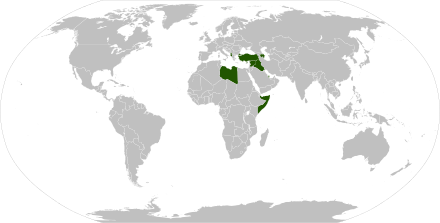
Turkey’s main foreign military bases
The spread of foreign military bases, while ultimately premised on the same expansionist and ‘great power’ ambitions, also merits separate consideration. Wikipedia lists the following Turkish foreign military bases.
Countries with Turkish military bases, facilities and troops.
- Albania – 20 to 250 troops in Vlorë naval base, with 2 frigates.
- Azerbaijan – Buildings and structures in Gizil Sherg military town, and one terminal building located in the airfield in Hacı Zeynalabdin settlement.
- Iraq – A base with 2000 personnel. Turkey has more than 20 military and intelligence bases in two provinces of Erbil and Dohuk of Iraqi Kurdistan.
- Libya – Airbases at al-Watiya, Mitiga and Misrata, in addition to Zwara.
- Northern Cyprus – A total of 30.000 armed forces of the Republic of Turkey are currently in active duty Cyprus Turkish Peace Force Command.
- Qatar – A base with 5000 personnel.
- Somalia – Camp TURKSOM with 200 personnel (could increase to over 1000).
- Syria – Bases in Al-Bab, Al-Rai, Akhtarin and Jarablus with at least 5k personnel. New bases were followed at Atme and Darat Izza.
Construction of Turkey’s largest overseas military base, in Somalia, began in 2015 and was completed in 2017. Unlike most other foreign military bases in the country (and the region more generally), it incorporates a well-equipped training academy for the Somalian armed forces which goes well-beyond the very limited US and European ‘training programs’.
Moreover, the cooperation between Somalia and Turkey includes major social elements such as the building of many schools, hospitals and other infrastructure, as well as trade and commerce elements, at a time when the ‘international community’ has largely left the country to fend for itself after several massive and hugely destructive foreign interventions (led by the US and Ethiopia respectively).
However, as Wayne Madsen pointed out in 2016, the military component of the bilateral cooperation agreement may have less to do with ‘combatting terrorism’ and more to do with annihilating ‘separatist’ ethnic groups which have long standing legitimate grievances concerning exclusion and brutal oppression by the central State, within the paradigm of securing substantial military and economic advantages in the broader geopolitical contest for power and resources, including taking over management of the country’s main port facility at Mogadishu.
Ankara is also threatening separatists that lie at the heart of Turkey’s planned military base in Somalia, the official mission of which is to train the officer corps of the fledgling Somali National Army…
The first victim of the Turkish military in Somalia may be the de facto independent Republic of Somaliland, which has existed as a peaceful but unrecognized nation since 1990 when it broke from the brutal Somali regime of dictator Mohammad Siad Barre. Although Turkey allegedly tried to moderate between Somaliland and Somalia, Turkey’s belligerent attitude toward separatists is well known in not only Somaliland but also in other separatist regions of Somalia, including Puntland, Jubaland, and others. These will be the initial targets of the Turkish military forces in Somalia…
After subjugating Somali autonomous regions, the Turks will turn their attention to predominantly Christian Ethiopia, where the largely Muslim Oromo people are suitable ‘Trojan horses’ for Turkish intrigue; Kenya, where there is a growing divide between the Muslim coastal region and the Christian interior; and Zanzibar, a secessionist-minded part of Tanzania dominated by the moderate Ibadi sect of Islam. Turkey has already shown itself to be a significant threat to Christian majority nations facing Islamist extremism, particularly Armenia, Ethiopia, and Kenya… LINK
While this is clearly a worst-case scenario, as always it is incumbent on the Somali leadership and people to exercise great care in their international relations and not believe everything they are told by their would-be partners.
Turkey’s Military Base in Somalia
‘First mover advantage’
The cooperation with Somalia is in large part a self-interested projection of Turkish ‘soft power’ combined with ‘hard power’ in the guise of an assistance and training program, described by Turkish officials as acting upon the ‘first-mover advantage’. While the strategy is somewhat reminiscent of a notorious financial ‘investor’ who advised to ‘buy while blood is running in the streets’, nonetheless, the bilateral cooperation program has also brought substantial benefits to many people in Somalia, and the courage and commitment of the Turkish people who are managing the social programs with little or no protection in the midst of a conflict zone must be acknowledged. Few other ‘regional’ or ‘major’ powers can make the same claim.
The news outlet Ahval surmised of Turkey’s objectives in the evolving geopolitical environment:
Mustafa Gürbüz, a non-resident fellow at the Arab Center in Washington D.C., said “Turkey’s regional ambitions and the geo-strategic rivalry in the Red Sea is a key driver in shaping threat perception of the Erdoğan regime.”
He noted that the July 2013 coup in Egypt, the “criminalisation of the Muslim Brotherhood by the Saudi-led coalition and the Qatar blockade have intensified Turkey’s militaristic response.”
“Opening the largest military base in Mogadishu is the most direct outcome of this threat perception,” he said.
“Turkey has long been active in Somalia in the past decade; however, the transformation from economic ties to military ties is a major geo-strategic decision for the Turkey-Qatar alliance in the Horn of Africa power game.”
Another analyst Ahval consulted concluded that the main obstacle Turkey faces in maintaining its overseas bases is accessibility since the Red Sea and Persian Gulf could easily be closed by Egypt, Saudi Arabia and the UAE.
Dr. Micha’el Tanchum … aptly summed up Turkey’s overseas naval installations as “a string of pearls that directly challenges the power of Egypt-Saudi Arabia-United Arab Emirates alliance.”
“With the military entrenchment of Turkey in the Horn of Africa, the Turkey-Qatar versus Egypt-Saudi Arabia-UAE competition has created an incendiary fault-line that now encompasses the entire Eastern Mediterranean-Red Sea maritime corridor,” he wrote…
“We witness this vulnerability in Sudan,” he said. “The Turkey-Qatar bloc’s rivalry with the Egypt-Saudi Arabia-UAE bloc spans a large swath of Africa and the Middle East.”
In this regional cold war, various local actors “are also eager to enlist the help of one side or the other to gain an advantage over their own local rivals.”
“We see this from Libya to Somalia,” he said. “The problem now is that these previously isolated conflicts have become increasingly interconnected in such a way that one flashpoint can affect another.” LINK
The modus operandi of the deployment and consolidation of Turkish ‘soft power’ is also revealed by its machinations in Lebanon. The situation in Lebanon also clearly demonstrates the extent to which ‘great power’ rivalries and plots are poisoning almost all major political and economic developments in the region.
France wants to regain a strong foothold in the Land of the Cedars, starting from the Port and ending with oil, gas, electricity and infrastructure agreements to build a robust popular base, if it succeeds in its endeavour.
However, there is another reason for the presence of France in the Middle East, from which it has been absent for a long time, and that is the Turkish presence that is building for itself fixed positions in Libya, Iraq, Syria, Lebanon and Palestine. After the Port blew up on the 4th of August, Turkish Vice President Fuat Oktay arrived in Lebanon at the head of a delegation that also included Foreign Minister Mevlut Cavusoglu, expressing to President Michel Aoun “Turkey’s readiness to build the port and the adjacent buildings.”
Turkey did not stop at this point, but announced its willingness to grant “Turkish citizenship to anyone who declares that they are Turkish or Turkmen and who wishes to become a citizen.” This has huge implications, because the presence of Turkish citizens in a nearby Middle Eastern country offers the leadership in Ankara an excuse to intervene directly to “protect its citizens” whenever it thinks fit…
The foothold of Turkey appeared in North Lebanon through assistance provided by the Turkish Cooperation and Coordination Agency (TIKA) in the northern regions of Denniyeh, Tripoli and Akkar. Remarkable activity by Turkish associations has been recorded in other Lebanese locations, particularly in Ketermaya, Burj Al-Barajneh camp, Debbieh, and other Palestinian camps…
The existing and potential allies of Turkey in Lebanon are more than ready to adopt the Turkish line after the decline of Saudi Arabia’s influence in this country in particular and in the Middle East in general. Moreover, the decline of the popularity of former Prime Minister Saad Hariri who used to enjoy the support of the majority of the Sunni, and the sharp differences in the Lebanese Sunni arena that is divided into multiple sections under a multiplicity of leaders from different backgrounds… LINK
Most recently, Turkey concluded a military cooperation agreement with Niger about a month ago. There are also reports that Turkey is becomely more actively involved in the conflict in Yemen.
Turkish officials have also been claiming to be on the verge of concluding an agreement with Oman to establish a military base there. Oman has found itself at the centre of lavish efforts to get the strategically located country to align with one side or another in the geopolitical intrigues that have reached a new fever pitch in the region. In addition to Turkey’s efforts to establish a military base in the country, the US and Israel have been exerting great pressure to get the country to ‘normalize’ relations with Israel. Oman would do well to keep a prudent distance from all attempts to entangle it in the building geopolitical storms.
The Turkish foreign minister also went to Mali recently to meet with the military junta that ousted the president of the country last month, presumably to try to gain a wedge of influence in that country against France which has become a major Turkish adversary in recent times, however it is unlikely that the Turks will have much success there as the political and economic elites and institutional structures in Mali and surrounded countries are deeply embedded with their (former?) colonial master, notwithstanding some diversification of relations among many members of the military leadership and the takeover of some of the country’s largest gold mines by Anglo-US corporate interests.
Conclusion
It seems most likely that the future trajectory of Turkey’s foreign relations under its current leadership will continue to switch sides and play off allies, rivals and enemies depending on what they perceive as the path of least resistance to consolidating control over occupied areas in Syria and Iraq and gaining access to the necessary military hardware and economic resources necessary to secure that objective. This is a dangerous game, which could also have devastating consequences in Turkey if it is pursued to its conclusion.
Turkey’s choosing to support Muslim secessionist movements in Cyprus and Macedonia while opting to fight Kurdish groups in Syria and Iraq, Somali groups in the Horn of Africa, and Armenian groups in Georgia may come back to haunt Ankara. By no means is the Turkish Republic immune to secessionism, from Turkish Kurdistan, former Assyrian and Armenian lands, and Lazistan in the east of Turkey to former Greek lands on the Turkish Mediterranean coast and to East Thrace, including Constantinople, in the western part of the country, there is ample room for external powers to use secessionism against the pan-Turkic regime of Erdogan and his cronies. Turkey, far from being a united Turkish republic beholden to a strong man like Erdogan, rests on an ethnic and religious house of cards. It would take only a strong gust of wind from Athens, Yerevan, Moscow, Belgrade, Skopje, Tehran, Hargeisa, and Addis Ababa to send the pan-Turkic regime’s troops home to deal with the rise of homegrown ethnic and religious nationalism far beyond that offered up by the Kurds. LINK
Meanwhile, it appears that Turkey’s expansion of military bases and other forms of military, economic and social cooperation in peripheral areas will continue to be largely based on opportunistic actions to further its major power ambitions and obstruct and antagonize its adversaries of the moment.
However, it must also be emphasized that Turkey is only one of many ‘regional’ and ‘major’ powers actively asserting its claims and pursuing its ‘self-interests’ in the region, and much will depend of the rapidly shifting geopolitical dynamics and the actions of other countries as well as international organizations. There has been a severe shortage of good will and common sense in the region for many years now, and Turkey is only one of many ‘players’ seeking to make personal gain at others’ expense.
MORE ON THE TOPIC:



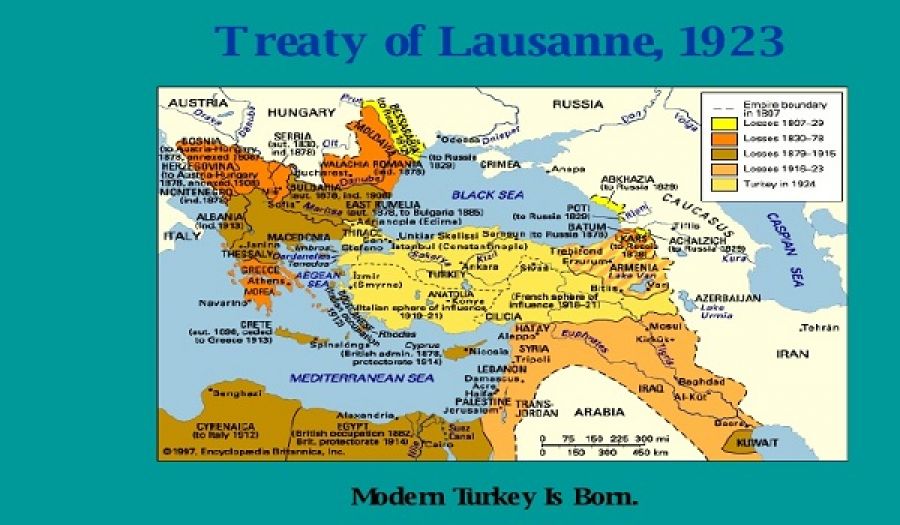
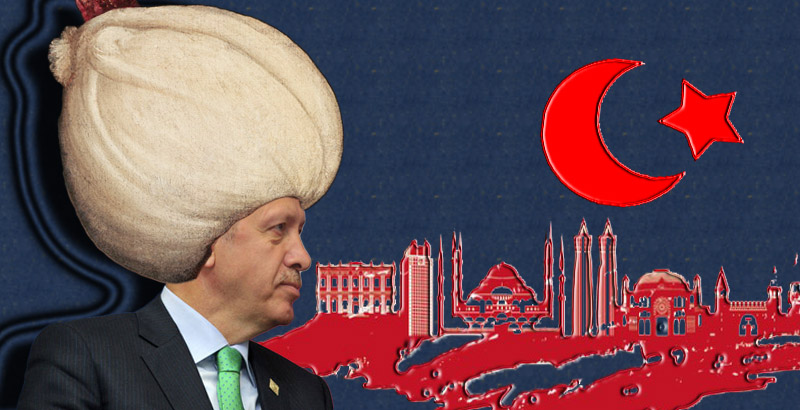
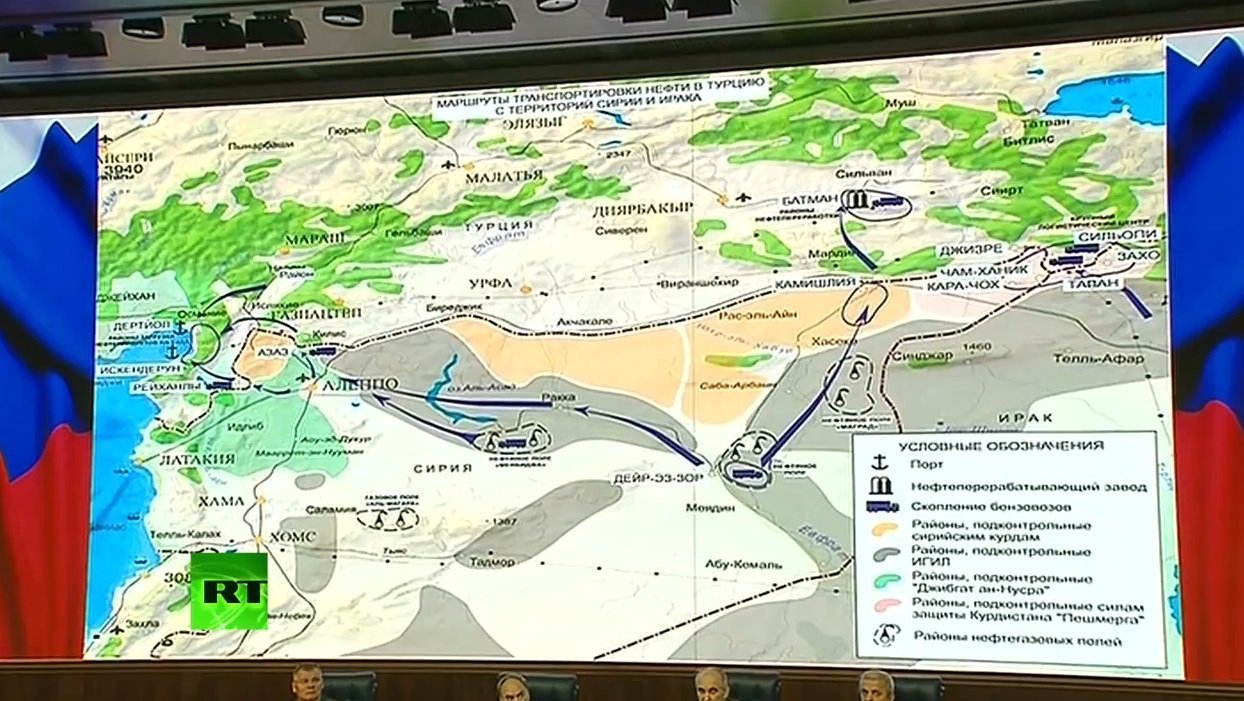
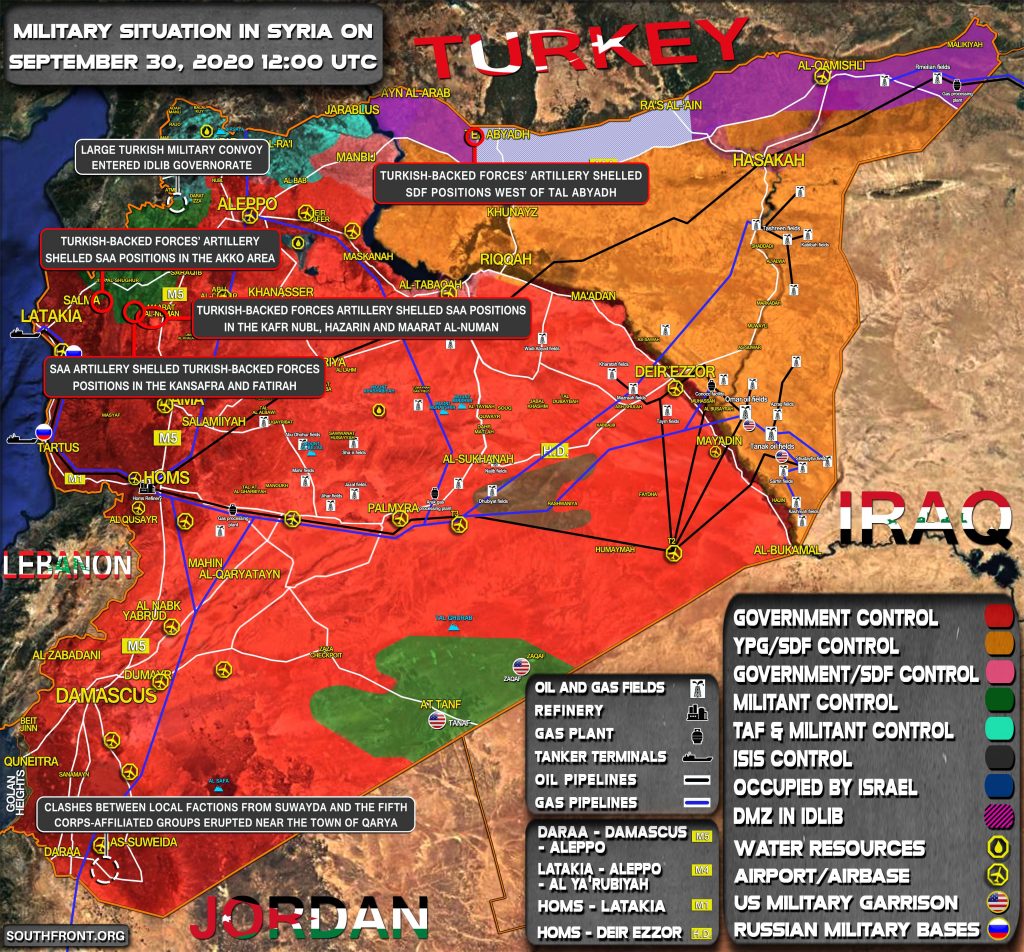
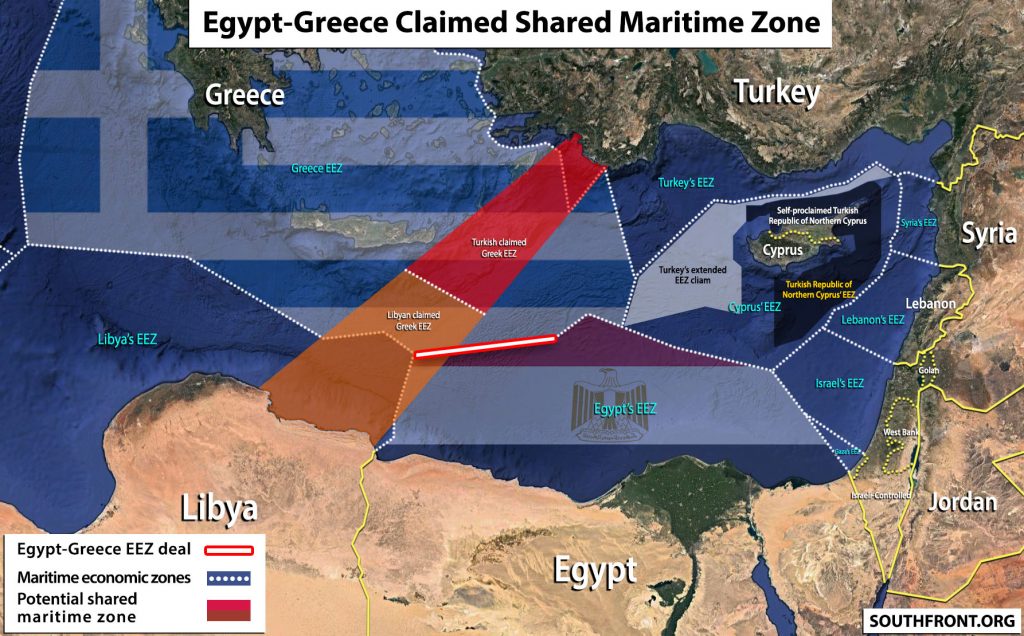
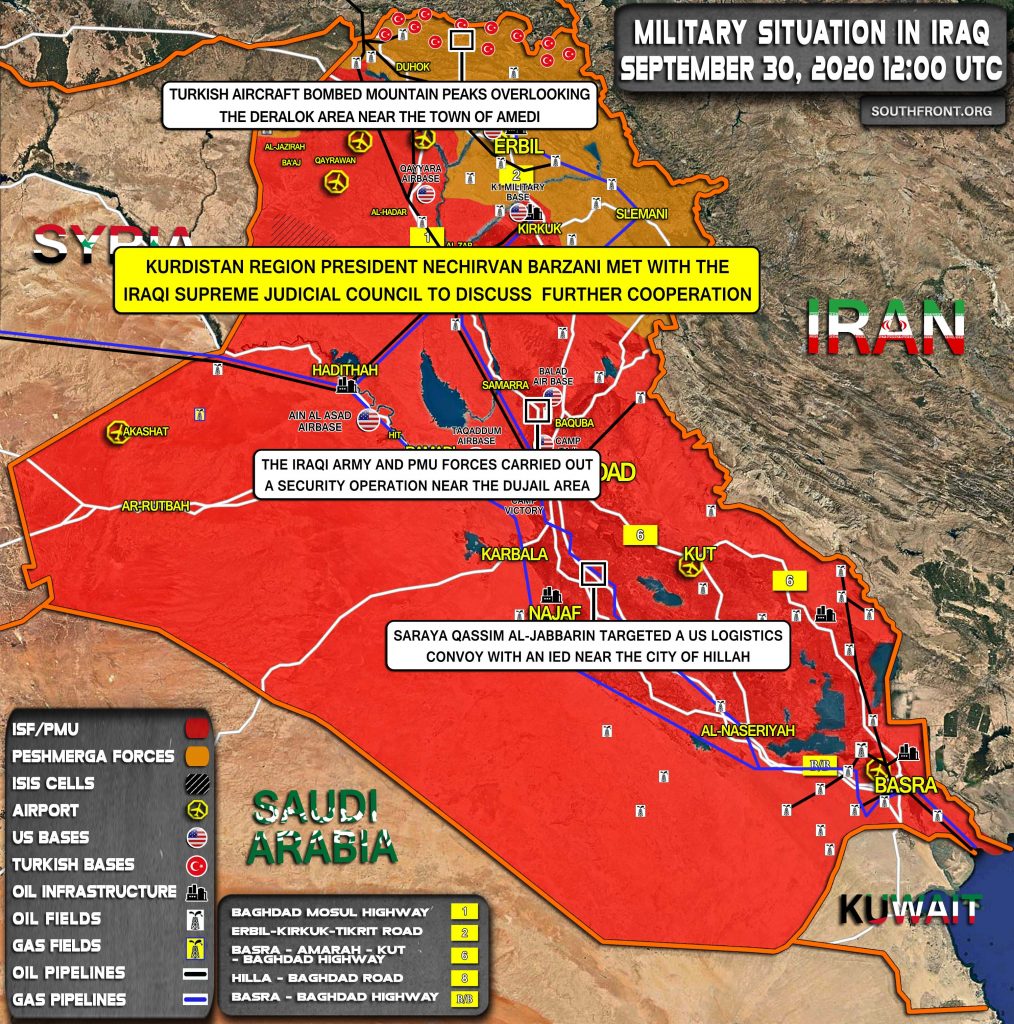
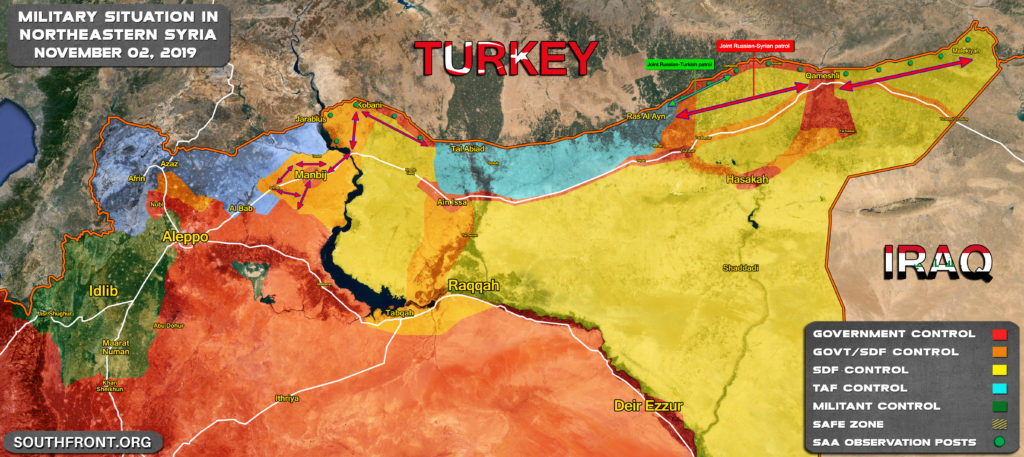
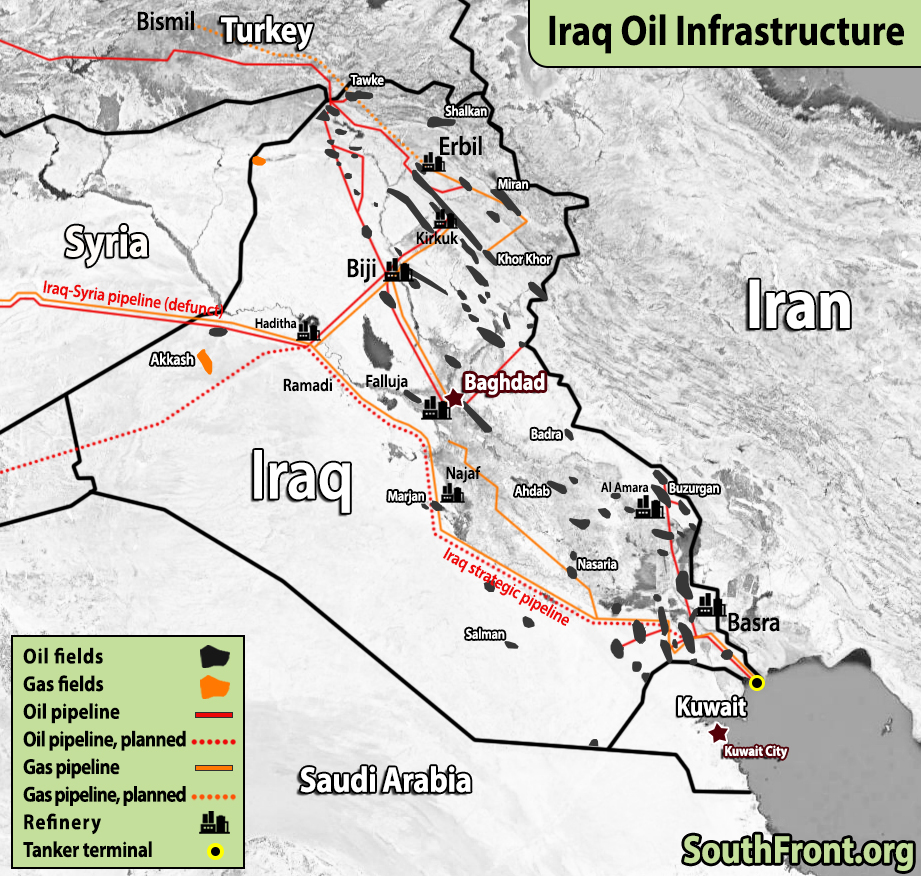
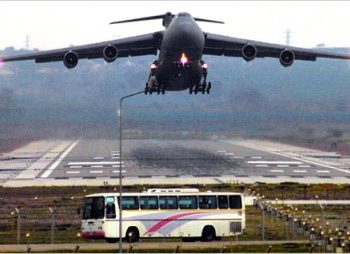
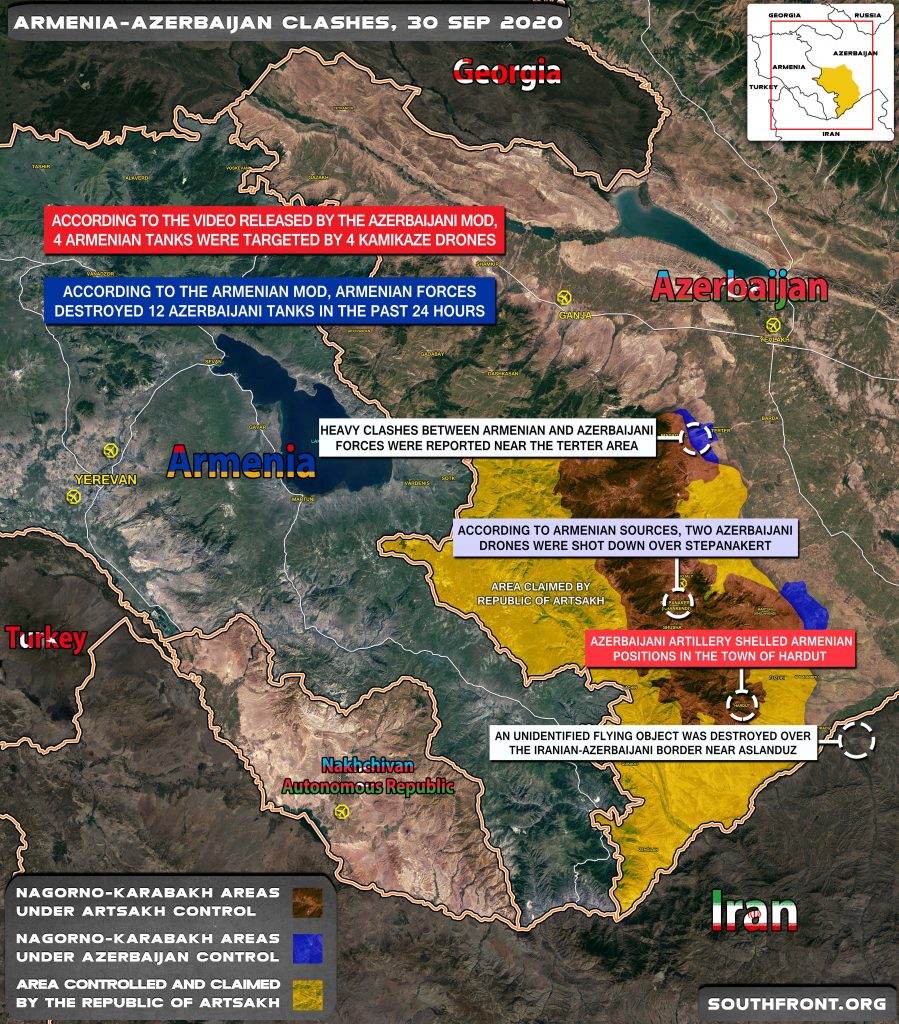




And here the Greek foreign policy During The Alexander Era.
http://users.sch.gr/ipap/Ellinikos%20Politismos/Yliko/Theoria%20arxaia/eikones/MacedonEmpire.jpg
That was 2000 years and irrelevant now.
The Erdogan regime is the biggest threat to peace in the region, even more so than Israel and the Saudis. It’s making a lot of enemies and karma will eventually cause it’s downfall again.
The west is in general decline and Mr. Erdogan being a street wise politician saw a power vacuum in Eurasia and is asserting historical Turkish agenda at Russia’s expense. The Turks hold a very strong grudge against the loss of prestige and territory to Russia, dating back to Peter the Great and Czarist and Bolshevik push south into the Caucasus and Crimea. Russia today is a weak corrupt state ruled by oligarchs and their puppet inept Putin and not in a position to take on Turkey as NATO is now firmly ensconced in Ukraine, Georgia, Azerbaijan and soon Belarus. Lack of coherent Russian military or foreign policy has presented Turkey with an opportunity to push its popular neo-Ottoman agenda, which also suits the US and UK.